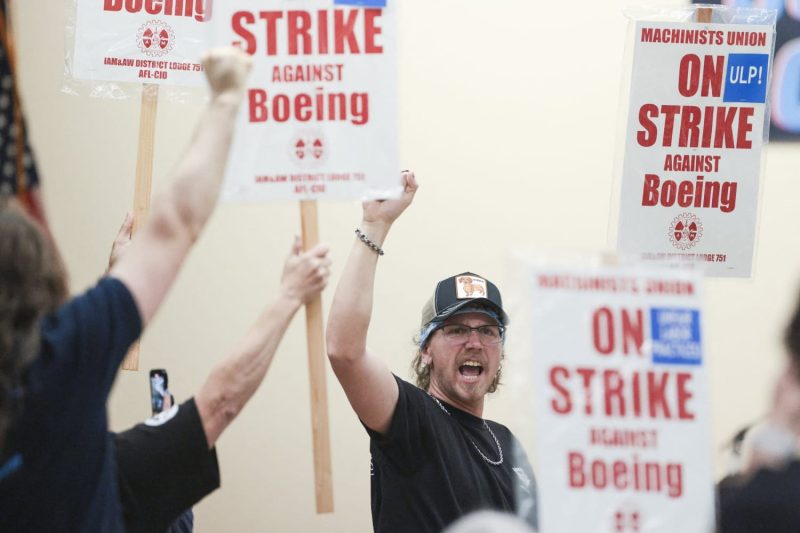
Boeing Factory Workers Walk Out in Protest After Overwhelmingly Rejecting Contract Offer
The recent strike by Boeing factory workers after overwhelmingly rejecting a proposed contract has brought attention to labor disputes in the aerospace industry. The decision to go on strike was not taken lightly by the employees, as it reflects the deep concerns they have regarding their working conditions, wages, and job security.
One of the key points of contention in the rejected contract was the issue of wages. Workers felt that the proposed pay raise was not sufficient to keep up with the rising cost of living, especially in areas where Boeing factories are located. Many employees highlighted that their workload had increased over the years, but their salaries had not kept pace with these added responsibilities. This disparity in compensation created frustration and a sense of being undervalued among the workers.
Moreover, job security was another major concern that led the employees to reject the contract and initiate the strike. In the dynamic and competitive aerospace industry, layoffs and job cuts are not uncommon. Workers feared that accepting the proposed contract would leave them vulnerable to losing their jobs in the future, especially given the uncertain economic conditions and global market pressures faced by Boeing. The lack of assurances regarding job stability heightened anxiety among employees, prompting them to take a stand against the company.
Additionally, the working conditions at Boeing factories were a significant factor that influenced the workers’ decision to strike. Employees raised issues related to workplace safety, long hours, and lack of sufficient breaks during shifts. These concerns were seen as critical to the overall well-being and satisfaction of the workers, who felt that their physical and mental health were being compromised in exchange for productivity and profit.
The rejection of the contract and subsequent strike by Boeing factory workers serve as a reminder of the importance of fair labor practices and the need for companies to prioritize the welfare of their employees. As the backbone of the aerospace industry, these workers play a crucial role in the success and profitability of companies like Boeing. Ignoring their concerns and grievances can lead to disruptions in production, damage to the company’s reputation, and ultimately, loss of talent.
In conclusion, the strike by Boeing factory workers underscores the significance of addressing the issues of fair compensation, job security, and working conditions in the aerospace industry. It highlights the power of collective action and solidarity among employees in demanding respect, dignity, and fairness from their employers. As this labor dispute unfolds, it serves as a wake-up call for companies to listen to their workers, engage in meaningful dialogue, and work towards building a sustainable and mutually beneficial relationship with their workforce.
